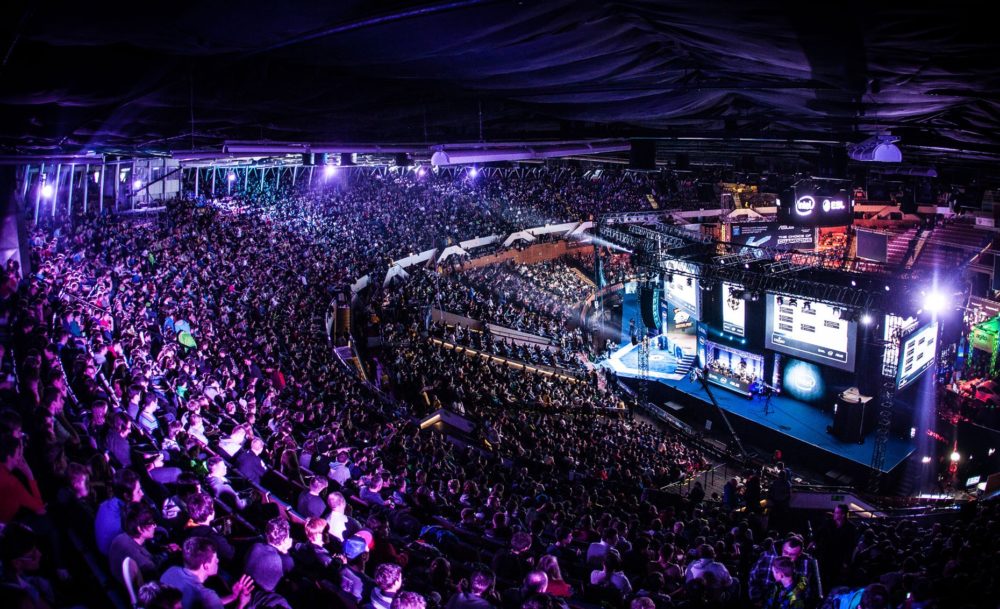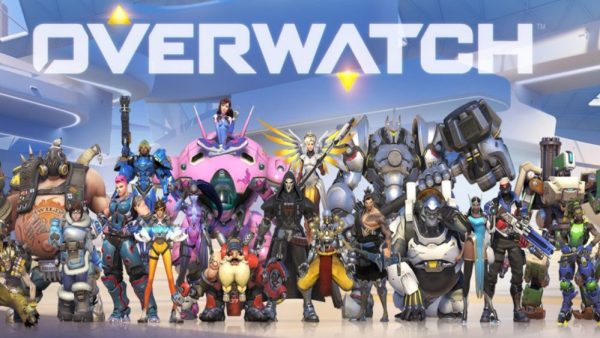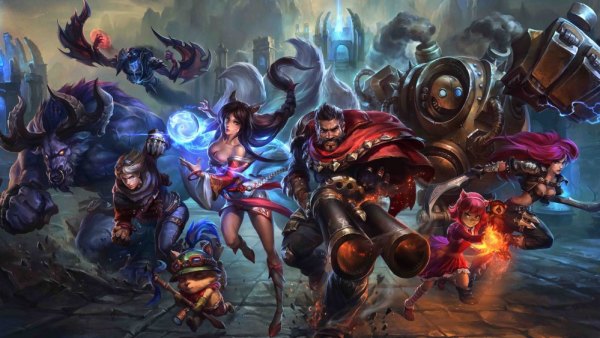Over the past decade, esports has grown from a niche to one of the world’s most lucrative forms of competitive entertainment. It is now firmly in the mainstream, attracting million of global spectators and investment from major sponsors. There’s huge money involved, with esports teams and players able to earn substantial incomes via salary, prizes, and sponsorship. We’re talking a look here at the best esports games to go pro in for 2019 and beyond, ranked by prize pools and money earning potential.
This ranking is based on a combination of factors, including lifetime prize pool totals, highest earning players, earning potential based on publisher investment and overall popularity (via twitch metrics). All data has been pulled from esportsearnings.com and Newzoo’s Twitch tracker.
12. FIFA 19
- Lifetime Prize Pool: $1,212,019.70 (19 Tournaments)
- Highest Earning Player: TekKz (Donovan Hunt) $207,000.00
When you’re planning a career in esports, you’ll likely have been attracted to the huge prize pools of massively popular tournaments like the Dota Invitational, League of Legends Championship Series, and Counter-Strike tournaments.
EA’s FIFA series, though, has much more potential than its modest prize pools and tournament numbers would suggest. You have to remember that EA is massively invested in esports, and they’re committed to hosting esports events for FIFA games probably in perpetuity.
For every new FIFA game that comes out, you’re guaranteed dozens of publisher-hosted tournaments, as well as other third-party leagues, and competitions run at large LAN evens like Dreamhack. There’s also a thriving online scene, and the prize pools are always decent, if not as spectacular as the millions and millions on offer in popular MOBA and first-person shooter games.
Not to mention, you don’t have to split your earnings with a team if you’re a FIFA pro — always something to consider.
2019 has already seen some lucrative FIFA 19 tournaments, such as the FUT Champions Cup with a prize pool of $200,000. Plenty more locked in throughout the year, including the upcoming ePremier League and eChampion’s League tournaments due to launch in 2019. Prize money hasn’t yet been confirmed for both, but we do know the latter is offering winners $100,000.
11. Rainbow Six Siege

- Lifetime Prize Pool: ($5,019,595.48) (75 Tournaments)
- Highest Earning Player: Pengu (Niclas Mouritzen) $295,863.40
Rainbow Six Siege had a bit of a rocky start, but Ubisoft’s commitment to supporting the game quickly steadied the ship. Part of the publisher’s marketing strategy has been a big esports initiative via the Six Invitational. This annual tournament features major prize pools, with 2018’s tournament the biggest yet at over two million dollars.
Outside of these publisher-run tournaments, though, the prize pools are solid and consistent but not all that lucrative. The ESL runs a Pro League season that features prize pools around $50,000, and then finals that usually triple that.
Of course, you have to remember team-based esports like Rainbow Six Siege means splitting prize pools between multiple players. This, in combination with the fact that Siege is not really considered a premier esport, means that earning potential through sponsorship is also limited.
There’s still major prize money up for grabs, though, and Siege is a game that Ubisoft is clearly committed to supporting with esports competitions moving forward. The game’s continued popularity means that the ESL and tournaments such as Dreamhack will continue running Siege competitions, too.
10. Call of Duty

- Lifetime Prize Pool: $1,204,802.00 (60 Black Ops 4 tournaments)
- Highest Earning Player: N/A
Similarly to EA, Activision Blizzard is a publisher highly motivated to invest and promote esports events for its games. That’s why we haven’t named a specific Call of Duty game here; you can bank on any iteration of the franchise to be featured in dozens of esports competitions around the world every year. And yes, the prize pool figure is less than FIFA 19, but there are multiple tournaments being run for multiple versions of Call of Duty in 2019, so it’s really not comparable.
If you want to get really serious, Activision Blizzard is about to take Call of Duty esports to similar heights as Overwatch. The publisher is about to launch a similar city-based franchise league for the popular franchise, in which teams are paid substantial salaries and have the opportunity to win massive prize pools.
It’s unclear yet whether this tournament will change Call of Duty games each with the annual release strategy that the franchise follows.
The new format will succeed the current Call of Duty World League, a 16-team tournament that has been running since 2016. This year’s prize pool is around $6 million dollars, up from $4 million last year.
Call of Duty’s popularity is so widespread, though, that there’s an opportunity to win decent earnings at the amateur/semi-professional level. Dozens of smaller tournaments and online leagues offer prizes for talented players to win. And where the annualized releases of Call of Duty games hold it back somewhat from being a top-tier esport, it probably plays into the hands of semi-professional players who can quickly get good at a new version.
9. Starcraft II

- Lifetime Prizepools: $29,808,990.50 (5320 Tournaments)
- Highest Earning Player: Maru Cho (Sung Choo): $718,310.15
Starcraft II has been an esports mainstay for years. It continues to be among the most popular esports games by number of esports hours watched on Twitch, as well as featuring substantial prize pools. Despite its five-year-old age and that there’s a sequel title that’s been out for some time, Blizzard’s Starcraft II doesn’t look like it’s going anywhere.
That all being said, it’s not necessarily trending upwards in terms of popularity. Starcraft II has its following, but the audience size isn’t likely to grow as in more modern esports. If you’re thinking about becoming a pro, you’ll also want to consider the caliber of experience you’re going up against. The best players in the world are seasoned veterans with years of tournaments under their belts.
Still, the prize pools are attractive, with Blizzard’s WCS Series Global Finals featuring $700,000 prize pools in 2017 and 2018. There are a number of qualifying rounds prior to the finals, each with their own smaller prize pools too. The game’s popularity also means that there are a number of tournaments run by third-party tournament organizers as well, such as the Intel Extreme Masters.
8. Hearthstone
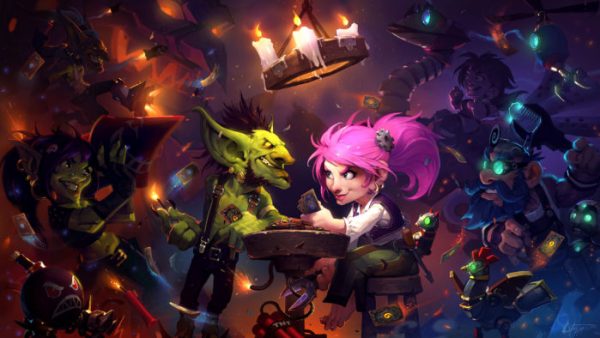
- Lifetime Prize Pool: $15,869,825.07 (826 Tournaments)
- Highest Earning Player: Thijs (Thijs Molendijk) $418,839.49
Hearthstone is the digital card game phenomenon that arguably kicked off the entire competitive scene, and it remains one of the most popular esports today. Tournament prize pools have dipped quite a bit in recent years, peaking in 2015 at $1 million at Blizzcon 2016 and dropping to roughly $400,000 at the Hearthstone Global Games 2018.
But the game is supported by both publisher Blizzard and several third-party tournament organizers. This, in combination with a strong viewership interest on Twitch, means that Hearthstone is an esport that should be around for some time.
2019 esports competitions for Hearthstone have already been announced by Blizzard, as they continue their Masters Tournament. The prize pool is just $250,000 at the moment, but it’s worth noting that the pool will build steadily as in-game purchases made by players will go toward that total. The number could easily hit two or three times that.
7. Magic the Gathering: Arena
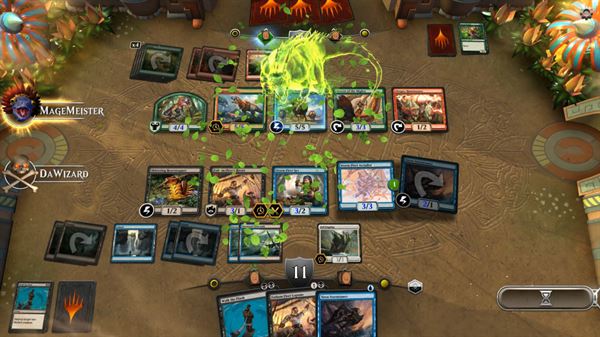
- Lifetime Prize Pool: $1,020,000.00 (85 tournaments)
- Highest Earning Player: Andrea Mengucci (Andrea Mengucci) $250,000.00
Another new player in the esports scene, the popularity of the Magic franchise is quickly catapulting this latest video game version up the esports ladder. The publisher/developer behind the game, Wizards of the Coast, are serious about supporting Arena with a massive esports initiative.
We’re including these new games on this list because they potentially present a less challenging route to becoming a professional in already well-established esports franchises. That being said, you’re going to need to have an already solid grasp of the tabletop game to go pro in the video game. Magic is a complicated card game that requires a deep understanding to play at a competitive level.
2019 is going to a big year for Magic the Gathering: Arena’s esports scene with two major tournaments and several qualifying competitions comprising nearly $4 million in prize money up for grabs.
Even if you don’t qualify for the tournament finals that feature the biggest prize pools, qualifying rounds at local MPL stores, smaller esports tournaments, events at MagicFest, Magic Online tournaments, and MTG Arena events are also offering prizes in the hundreds of thousands to winners. Wizard of Coasts’ investment in esports moving forward is why we have ranked Magic above previous games on this list.
6. Arena of Valor

- Lifetime Prize Pool: $4,333,501.25 (24 tournaments)
- Highest Earning Player: Fly $86,666.67
The mobile esports gaming scene is on the rise and Arena of Valor is leading the charge. The MOBA title is huge in the east, but it’s becoming increasingly popular on a global scale and major esports like such as the ESL are now hosting competitions with big prize money up for grabs.
You’ll notice the near four and half million dollars in prize money from just 24 tournaments –a large proportion of that total is attributed to competitions in China, where the game is known as Honor of Kings. The Summer Cup, for example, had a $1 million prize pool in 2018.
In the west, ESL prizes are still around half a million dollars, though, so there’s certainly substantial money to be one. You’d have to imagine that the game’s comparatively smaller following should mean it presents an easier opportunity to get involved at the competitive level than more established MOBAs. Obviously, League of Legends, DOTA, Heroes of Newerth and the like are all highly competitive games that are dominated by seasoned teams.
As the esports mobile scene continues to build momentum and Arena of Valor further establishes itself in the west, we’re expecting this to become one of the industry’s major esports games of the future.
5. Fortnite

- Lifetime Prize Pool: $22,538,968.74 (250 tournaments)
- Highest Earning Player: Bizzle (Timothy Miller) $505,650.00
You can’t talk about video games these days without mentioning Fortnite. The battle royale game has taken the globe by storm, and it’s the hottest multiplayer game based purely on popularity and interest. The esports scene is in its early stages, but it’s growing rapidly.
If you’ve been playing Fortnite since it first landed and consider yourself an expert, this is the time to start getting serious about your pro career.
Epic Games had up until quite recently been quite restrictive in the number of Fortnite tournaments it was willing to allow, preferring full control of tournament setups rather than letting third-party tournaments run.
They’ve just announced a big investment in the esports scene, though, pledging $100 million in prize pools across a number of competitions, tournaments not run by Epic. Put simply, Fortnite is about to make its big entrance to the esports scene.
Given its global popularity and huge investment from its publisher, Fortnite looks set to become the first established battle royale esports game.
4. Counter-Strike: GO
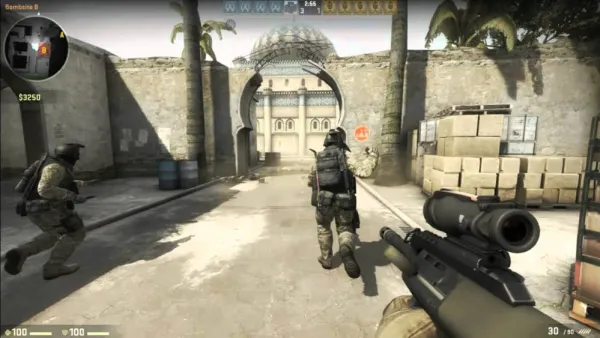
- Lifetime Prize Pools: $73,381,120.86 (3964 Tournaments)
- Highest Earning Player: Xyp9x (Andreas Højsleth) $1,449,321.90
Counter-Strike has been around for over twenty years in one form or another, and it’s been an esport for that entire time. Counter-Strike: GO is the latest iteration, though it’s hardly modern, having first launched in 2012. It was GO that exploded the series’ popularity, though, with a free-to-play model that exposed new audiences to its gameplay. In turn, the esports viewership has continued to rise and the prize money has become even more lucrative.
The ESL, ELEAGUE, World Electronic Sports Games, and FACEIT CS: GO tournaments all feature prize pools of over $1 million each year, all with qualifying rounds that also have their own substantial prize pots. Global tournaments around the world are in the dozens, spanning both online and offline competitions.
CS: GO is an extremely competitive esport that requires a dedicated team of professionals to succeed at, but there’s no question that it’s among the most attractive games in terms of earning power. More than just prizes, the sheer volume of spectators means that sponsorship deals are also worth big numbers.
3. Overwatch
- Lifetime Prize Pools: $13,553,844.92 (643 Tournaments)
- Highest Earning Player: Gesture Hong (Jae Hee) $194,730.97
Overwatch exploded onto the esports scene almost as soon as launched. In fact, there were competitions for the game while it was in beta offering $30,000! The game has been built with esports in mind, and Blizzard’s Overwatch League is perhaps the most ambitious and forward-thinking esports competition to date.
The Overwatch League is a city-based esports league franchise hosted by Blizzard, who sold team franchises for around $20 million before the league began officially in 2018. There are huge plans for The Overwatch League moving forward, and if it isn’t already, it’s destined to become the most established esports competitions globally.
For this reason, we simply have to give it the nod above Fortnite and other established esports such as Starcraft II and Hearthstone.
2. DOTA 2
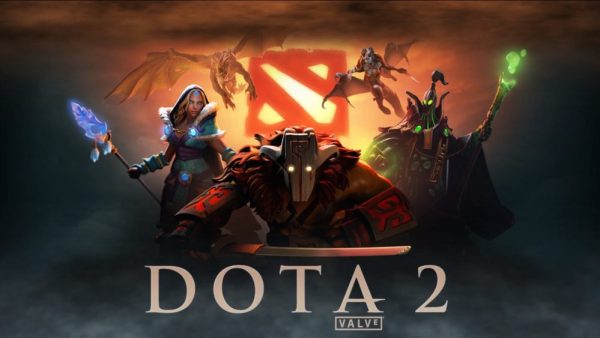
- Lifetime Prize Pools: $177,365,705.19 (1085 Tournaments)
- Highest Earning Player: KuroKy (Kuro Takhasomi) $4,164,203.61
DOTA 2 has long been the king of esport prize pools; crowd-funding for The International tournaments has pushed numbers upward of $24 million. These publisher-hosted events comprise a huge portion of the total lifetime prize pools, but even third-party competitions such as the ones run by the ESL offer prizes in the millions.
It’s important to remember, however, that Valve doesn’t pay player salaries in the same way that Blizzard and Riot Games do, which is why the prize pools are so much higher. The viewership of DOTA 2 tournaments tends to skew heavily to Chinese audiences, also, with 13 million of the 15 million viewers of the 2018 International final from China.
The disproportionately large volume of the audience and interest between east and west makes DOTA 2 a less desirable esport to be involved with. Particularly so, given that audience numbers don’t seem to be growing all that much year-on-year. MOBA games, in general, aren’t seeing the same growth as FPS, battle royale, and sports games on a global scale.
As a result of its inaccessibility, limited audience demographic, and potentially dubious longterm viability, DOTA 2 doesn’t quite sit at the top of our list.
1. League of Legends
- Lifetime Prize Pools: $64,086,925.61 (2212 Tournaments)
- Highest Earning Player: Faker (Lee, Sang Hyeok) $1,175,927.15
League of Legends was Riot Games’ answer to Valve’s popular MOBA Defense of the Ancients (DOTA) and its sequel, and the game has been vying for top-spot among the most popular and biggest earning esports in the world for years.
It goes without saying that to compete at the top level in League of Legends is serious business, and you’re going to need to join a team of dedicated professionals to earn anywhere near the amounts of the highest earning players.
League of Legends is played competitively at dozens of global tournaments, but the most notable is Riot Games’ own Championship Series. The series is similar to the Overwatch League in that all players are paid a set salary by Riot Games, and tournament prize earnings are just a bonus.
The salary structure is why the actual prize pools are a little less than DOTA, though still nothing to scoff at. The LCS 2018 final had a prize of $6.4 million. Elsewhere, minor third-party tournaments offer consistent prize pools of $10-$100,000.

